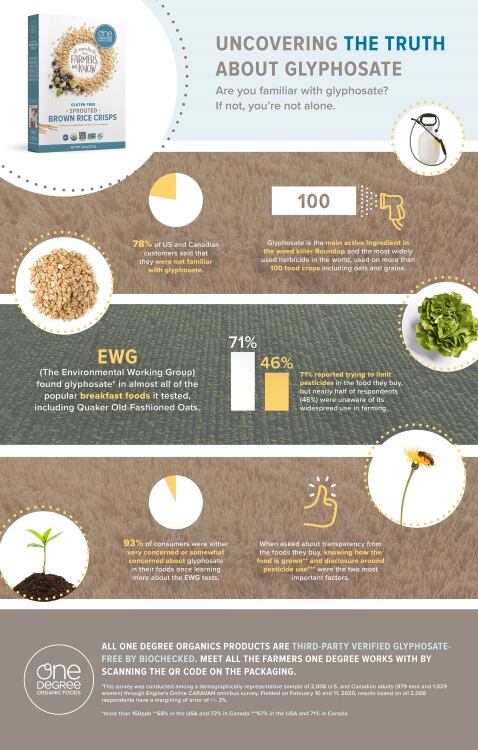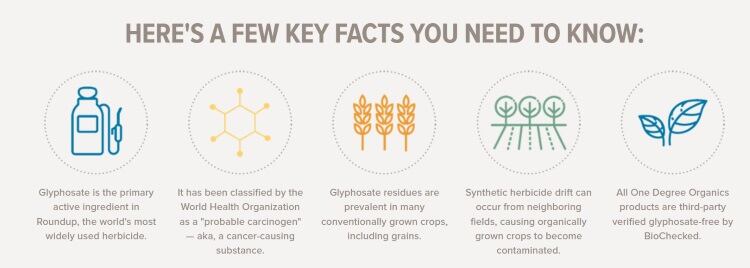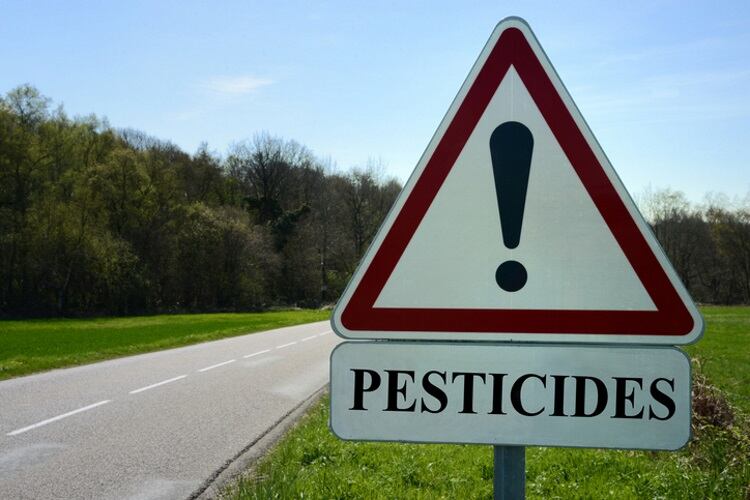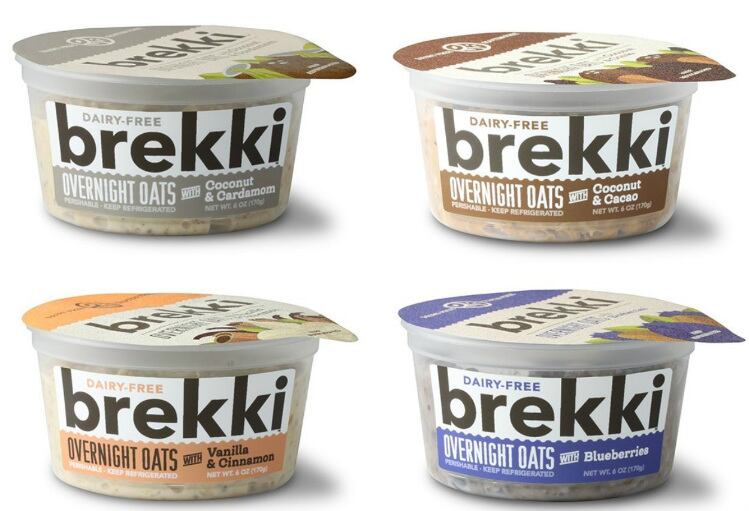Glyphosate, the main active ingredient in herbicides like Bayer’s Roundup, has received much media attention of late, pummelled with lawsuits alleging exposure has caused cancer (in fact, the ingredient is classified as a probable carcinogen by the WHO’s International Agency for Research on Cancer). Even legally approved pesticides can be carcinogens – a 2010 report by the President's Cancer Panel concluded pesticides were associated with numerous types of cancers, including pancreatic, non-Hodgkin lymphoma, myeloma, colon, testicular and soft tissue sarcoma.
This has led to Bayer’s announcement that beginning in 2023, it will replace all glyphosate-based products for the US residential market with non-glyphosate alternatives.
Glyphosate exposure in children
However, the damage is already done. While farmers are increasingly discarding the use of synthetic herbicides as a pre-harvest drying agent, drift can occur from neighbouring fields, tainting even organic crops.
A 2019 Canadian Food Inspection Agency report found 90% of pizza, 88% of wheat flour, 84% of crackers, 84% and 80% of fresh and dried pasta, respectively, 70% of chickpea flour and 67% of lentils were tainted with glyphosate. Similarly, the Environmental Working Group (EWG) said it had found glyphosate in more than 95% of oat-based products.
More worryingly, a January 2020 study revealed the pesticide's use is still so prevalent that it was detected in 11% of American children and – shockingly – in 30% of newborns.
In 2019, researchers from the University of California published a population-based case-control study that found a 60% increase in rates of autism and intellectual disability in children who in their first year of life lived within about a mile of areas highly sprayed with glyphosate.

What do consumers think?
Taking its responsibility to deliver a product free of glyphosate incredibly seriously, family-owned One Degree Organics decided to poll Americans to see if these facts had filtered through to them. Taking its responsibility to deliver a product free of glyphosate incredibly seriously, family-owned One Degree Organics decided to poll Americans to see if these facts had filtered through to them – especially as the pandemic has laser-focused the consumer’s attention on nutrition and its impact on health.
Unfortunately, though, its survey of US and Canadian adults found that, while the majority are actively trying to limit pesticides in their food (69%) and on their lawn (53%), 81% still have no idea of what glyphosate is.
Other findings revealed:
- Once brought up to speed on glyphosate, 90% of North Americans expressed serious concern.
- While fruits and vegetables are high on consumers’ watch list for pesticides – 89% claimed to scrutinise labels to limit exposure – only 48% are aware of ‘contamination’ in the grains category. According to the US Environmental Protection Agency (EPA), glyphosate is the most widely used herbicide in US agriculture, used on more than 100 food crops, including oats and corn.
- 88% of respondents said they were much more likely to buy a product if it was verified to be free from glyphosate.
Gap persists
“For many, the past two years have led to a better understanding and appreciation of the connection between nutrition and health,” said cofounder Stan Smith.
“Yet, even as many consumers are now prioritising better-for-you options, this gap between concern and knowledge persists – in fact, our survey results show that levels of awareness about glyphosate have barely shifted since 2020, despite the recent high-profile attention.
Smith added, “As a company committed to total transparency and sustainable production practices, I believe we have an opportunity to do right by those consumers who are themselves seeking better."
In addition to sourcing non-GMO and certified organic ingredients from a trusted network of farmers, One Degree Organic Foods regularly tests its products to confirm they are free of glyphosate contamination due to drift. Its and display the third-party verified BioChecked Non-Glyphosate Certified Seal.
Its cereals, granola, breads, flour and seeds are also plant-based, often gluten-free, and all display the third-party verified BioChecked Non-Glyphosate Certified Seal.

Studies:
Reducing environmental cancer risk: What we can do now?
Authors: Leffall, LaSalle D. and Kripke, Margaret L.
Department of Health and Human Services, National Institute of Health, National Cancer Institute, President's Cancer Panel (April 2010).
Glyphosate exposures and kidney injury biomarkers in infants and young children
Authors: Leonardo Trasande, Sandra India Aldana, et al.
Environmental Pollution, Volume 256, 2020, 113334, ISSN 0269-7491,
doi.org/10.1016/j.envpol.2019.113334
Authors: Ondine S von Ehrenstein, Chenxiao Ling, et al
BMJ 2019; 364, 1962
doi: https://doi.org/10.1136/bmj.l962
One Degree Organic Food’s survey was conducted in April 2021 among demographically representative samples of 1,515 North American adults by Engine Insight.





